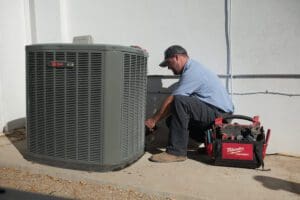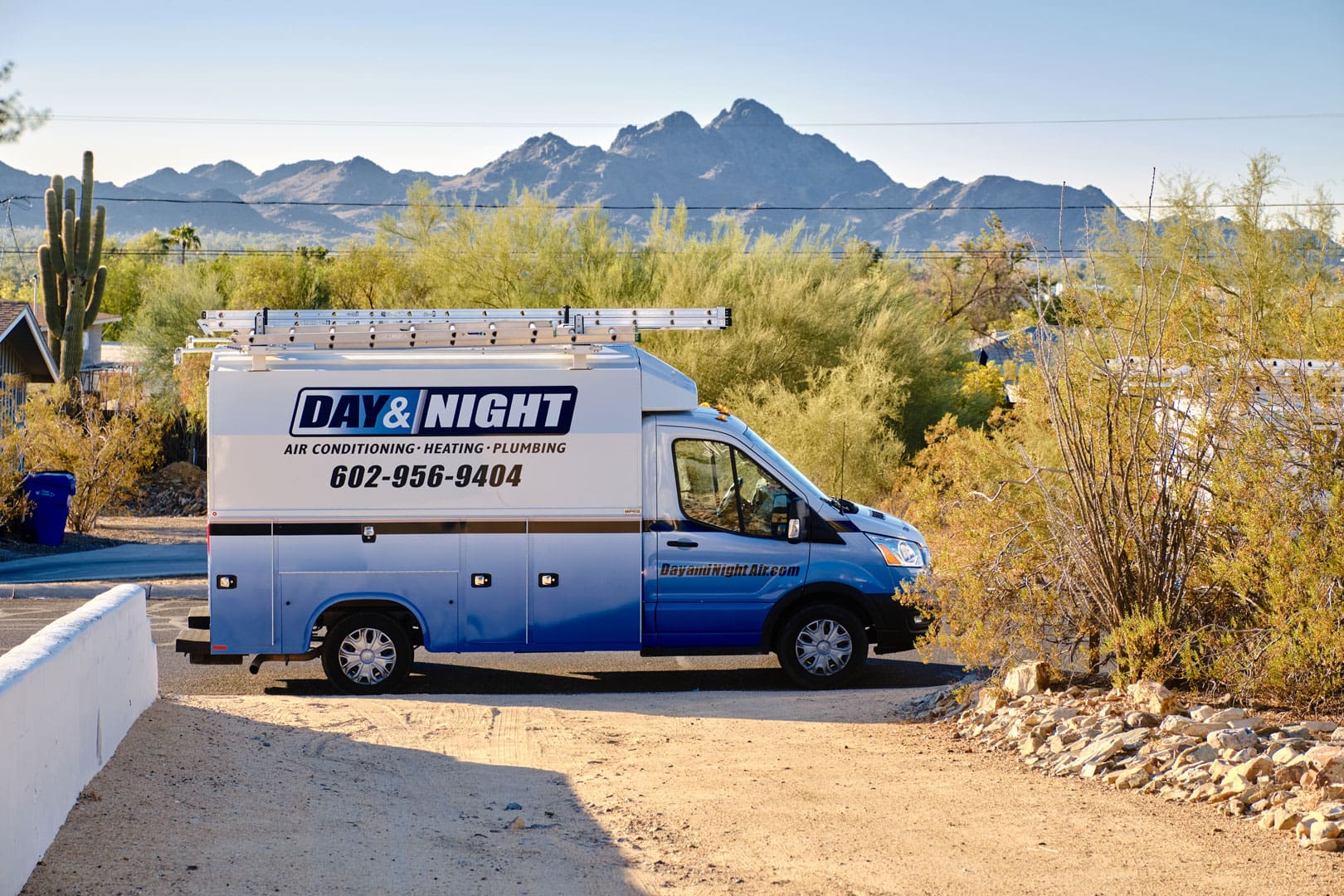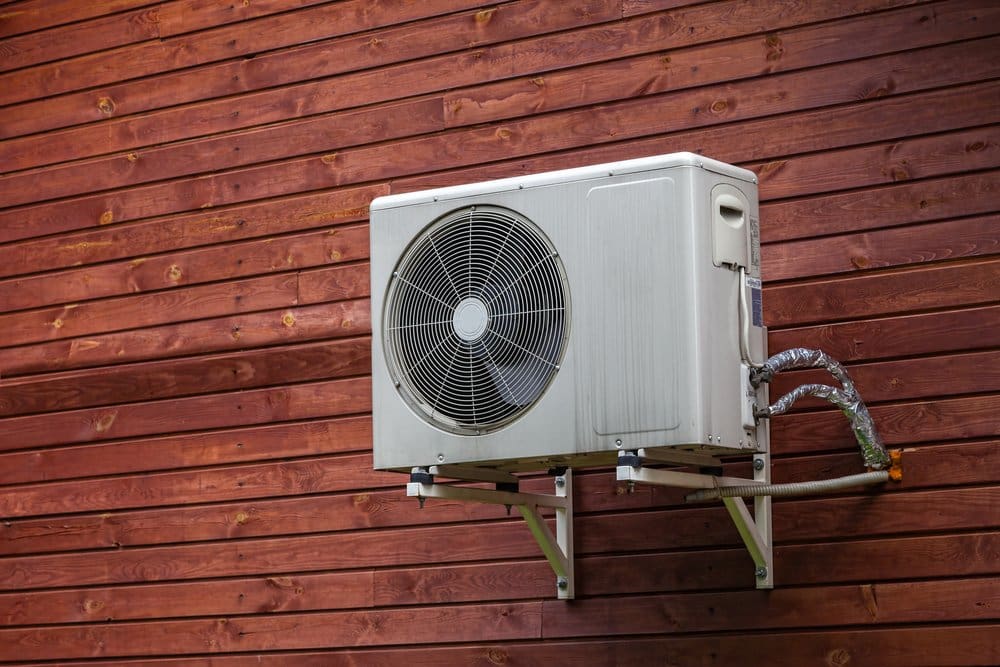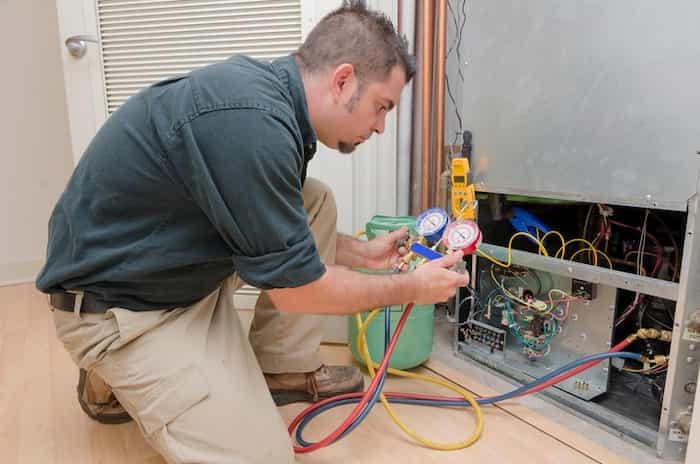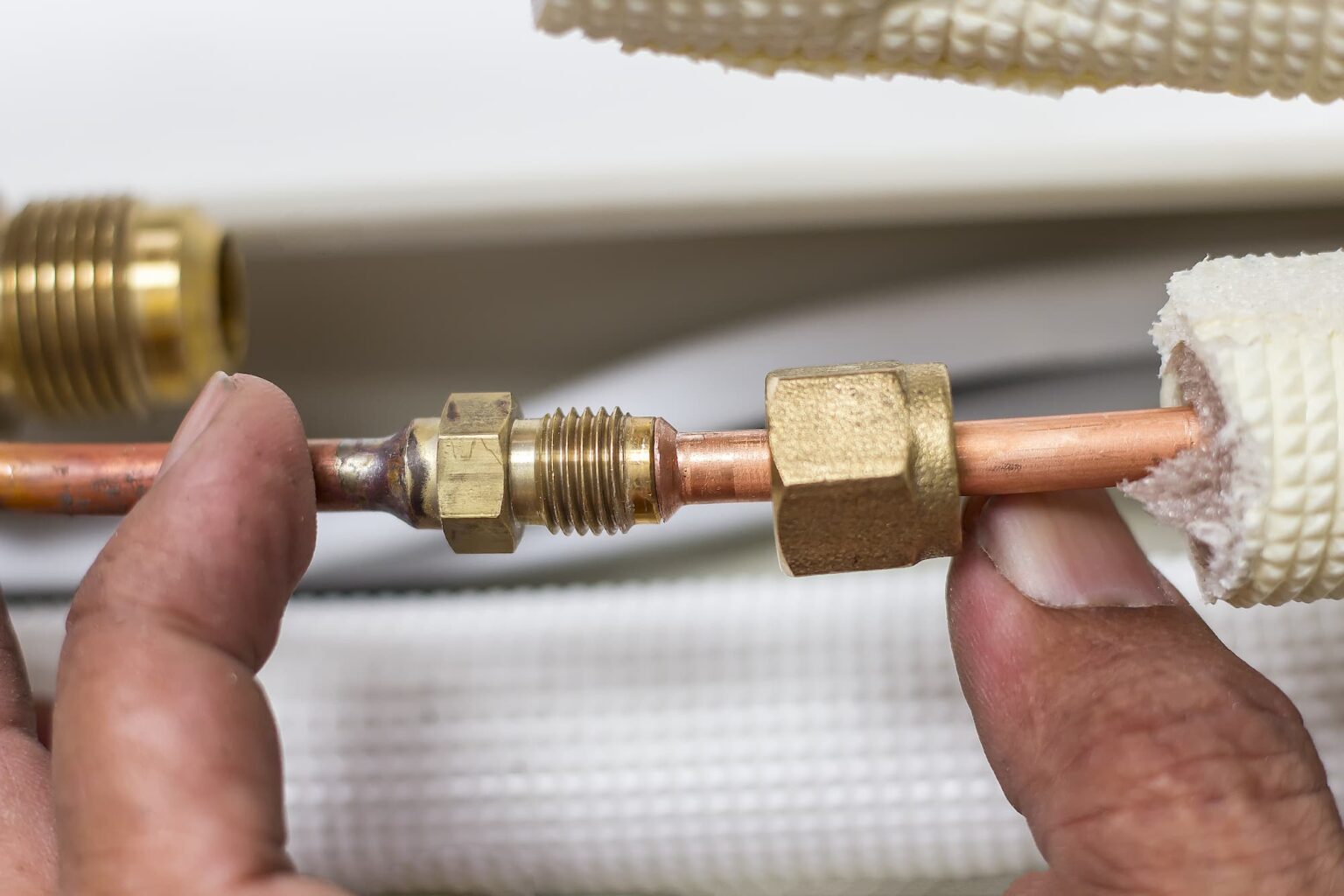Looking for options to boost your home’s indoor air quality? This article can help you find the answer to your questions:
- Do air conditioners purify the air?
- What kind of filter do you need to purify the air?
- What are the differences between an A/C and an air purifier?
Enjoying clean air in your home is important, especially in the Phoenix area, where air quality is important. It helps you relax more when you can breathe deeply and feel the fresh air. Plus, many moms and dads want to give their kids a home environment that is clean and safe. What are the best ways to ensure the good indoor air quality in the home?
Do Air Conditioners Purify Air?
To answer this question simply: “no-but…”. Overall, air conditioners only remove and circulate the air in your home. The primary function of air conditioners is to produce fresh air and reduce heat in a room. They can, however, remove different contaminants such as pollen and dust from indoor air through the proper filters. Only with a HEPA filter do a/c units help with things such as allergens and smoke. However, if you want the best indoor air quality possible, you need to choose a system that can provide it.
Your choice of air-conditioning system and filter can make a huge difference in the level of contaminants within the home. Some options are better for filtering the whole home, while others focus on air purification in a smaller area. To help you make a great decision, let’s go over the most important factors one at a time.
Level of Air Filtration Desired
Air conditioners can trap pollen, pet dander, dirt, dust mites, pollutants, and more with the right filter. This helps to keep the air inside your home a lot cleaner than outside air. On the other hand, most air conditioners aren’t designed to filter air. Their main purpose is to keep rooms cool, not eliminate microbes and things like that. So you probably won’t get the same level of filtration that you would with an air purifier.
Type of Air Conditioner
There are several types of air conditioners that homeowners living in Phoenix, AZ, and surrounding metro cities choose, including central air and ductless mini-splits. If you want to purify the air in your whole home, you need a central HVAC unit with an air purifier add-on.
Ducts circulate air from different rooms through the system. As the air passes through the air filter, unwanted particles get trapped. This is a convenient and effective option for air purification in a home, but it costs more than a traditional HVAC. Ductless mini-splits are designed around energy efficiency, so they don’t usually filter smaller particles.
A/C Filter
For any air conditioner, the level of air purification you get depends on the quality of the system’s air filter. A high-efficiency particulate air filter, or HEPA filter, can trap tiny particles all the way down to 0.3 microns. This includes many viruses and bacteria, plus allergens, dirt particles, and dust mites. HEPA filters mean spending more, but for many families, the air quality benefits are well worth it.
Another term that determines filtration is the minimum efficiency reporting value or MERV. Higher MERV ratings are better at capturing these small particles. MERV 11 provides medium efficiency, so it helps a lot with allergens and mold spores, but not with microbes. MERV 18–20 can catch tiny particles.
There’s a catch, though: Not all HVAC systems are equipped for high MERV ratings. Filters that are good at catching tiny particles also affect airflow, which can prevent the air conditioner from pushing cold air through the home. Always talk with our HVAC pros before changing to a different air filter rating so you can avoid A/C problems.
What Kind of Contaminants Do You Want To Remove?
It’s absolutely possible for people who have allergies to enjoy a more comfortable home with a good air conditioning system and filter. Pollen, pet dander, and other allergens can be removed with the air filters included with modern HVAC units and ductless mini-split systems.
What if you’re concerned about air pollution in the big city? Air conditioners (and even many air purifiers) don’t get rid of harmful gases or chemical smells. To remove this type of contaminants, you need an air purifier specifically designed to eliminate VOCs or chemical vapors. These air purifiers have several special activated carbon filters.
Amount of Maintenance Needed
A clogged filter doesn’t do a good job of improving indoor air quality. Dust particles start to circulate around instead of getting cleaned out.
In Phoenix, AZ, and the surrounding valley area, we recommend changing most air filters every 45 days or so. If you have pets, replace the filter every 30 days. HEPA filters can usually go six months before needing to replace.
Ductless mini-splits are different. To maintain good airflow, you need to clean the filter every two weeks. The process is pretty easy, so many people just take a few minutes to clean them on a weekly basis as part of regular a/c maintenance housework.
Do Air Purifiers Work Better Than Air Conditioners for Air Quality?
Many families wonder which system wins in the battle of HVAC vs. air purifiers. But that’s like comparing apples to oranges. Both systems have different purposes and different components. An air purifier doesn’t keep your home cool, and an air conditioner doesn’t give you the same level of air filtration that a purifier will.
Pros and Cons of Air Purifiers
Investing in an air purifier obviously means spending more money. But it also gives you the best air quality possible:
- Air quality sensors: Air purifiers can help you keep an eye on air quality in specific rooms.
- Improved purification speed: These systems can pump more air through the unit, cleaning the air much more quickly than with an A/C.
- Higher filtration levels: Air purifiers are designed explicitly for high-efficiency HEPA or MERV filters. They can capture viruses, bacteria, and dust mites without problems.
- Specialized filtration options: You can get air purifiers that take care of chemical odors, paint fumes, and other pollutants.
- Effective virus elimination: Some air purifiers use UV light to kill microbes, not just catch them.
The main downsides of air purifiers are the cost and the area filtered. Air purifiers only clean the air in a single room. Of course, for moms and dads who mainly care about keeping their newborn safe, having an air purifier in the baby’s room can be a great solution.
Pros and Cons of A/Cs for Air Quality
A high-quality air conditioner can give you amazing home comfort and a decent level of air purification. With the right air filter, you can enjoy fewer allergies and a fresher, cleaner home. We can also install an add-on to your HVAC unit that delivers improved air purification for every room. However, you need to choose a professional for this type of work because we have to make sure your current HVAC system is up to the task in terms of airflow and cooling output.
For help choosing the right type of air purification and air conditioning for your needs, contact our experts right away. At Day & Night Air Conditioning, Heating & Plumbing, we’re friendly and helpful. We’re the HVAC professionals you can always trust in Phoenix, AZ, and surrounding metro cities.
Featured Image: 1989studio/Shutterstock

